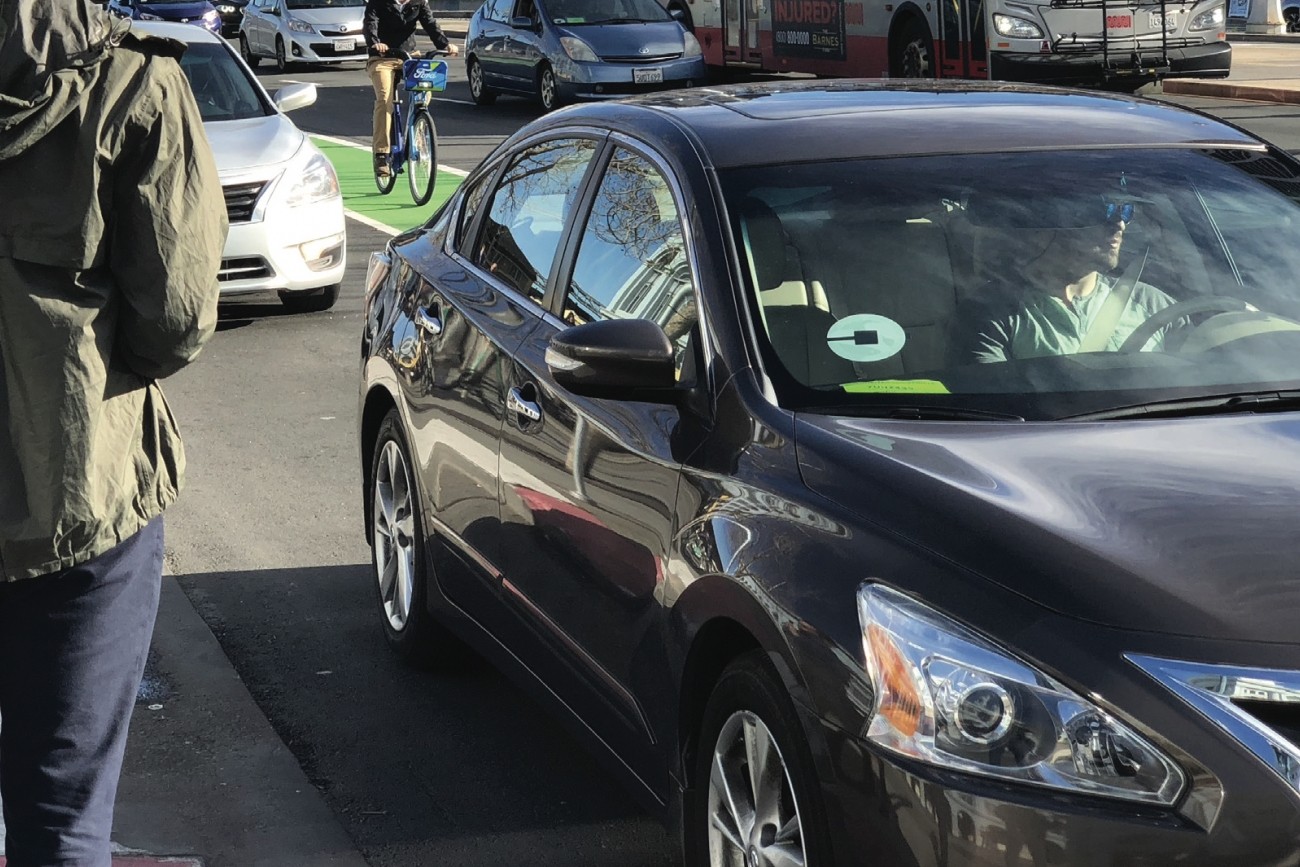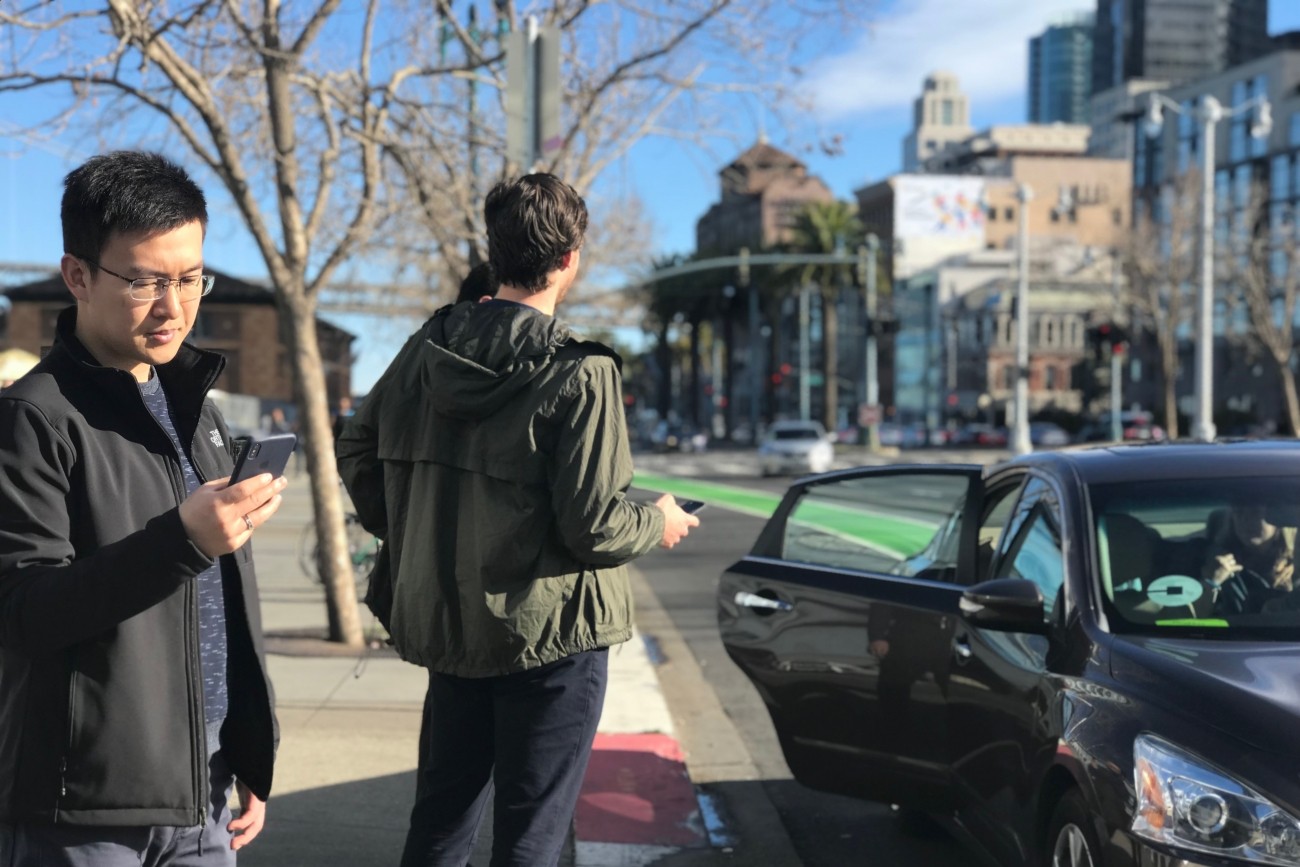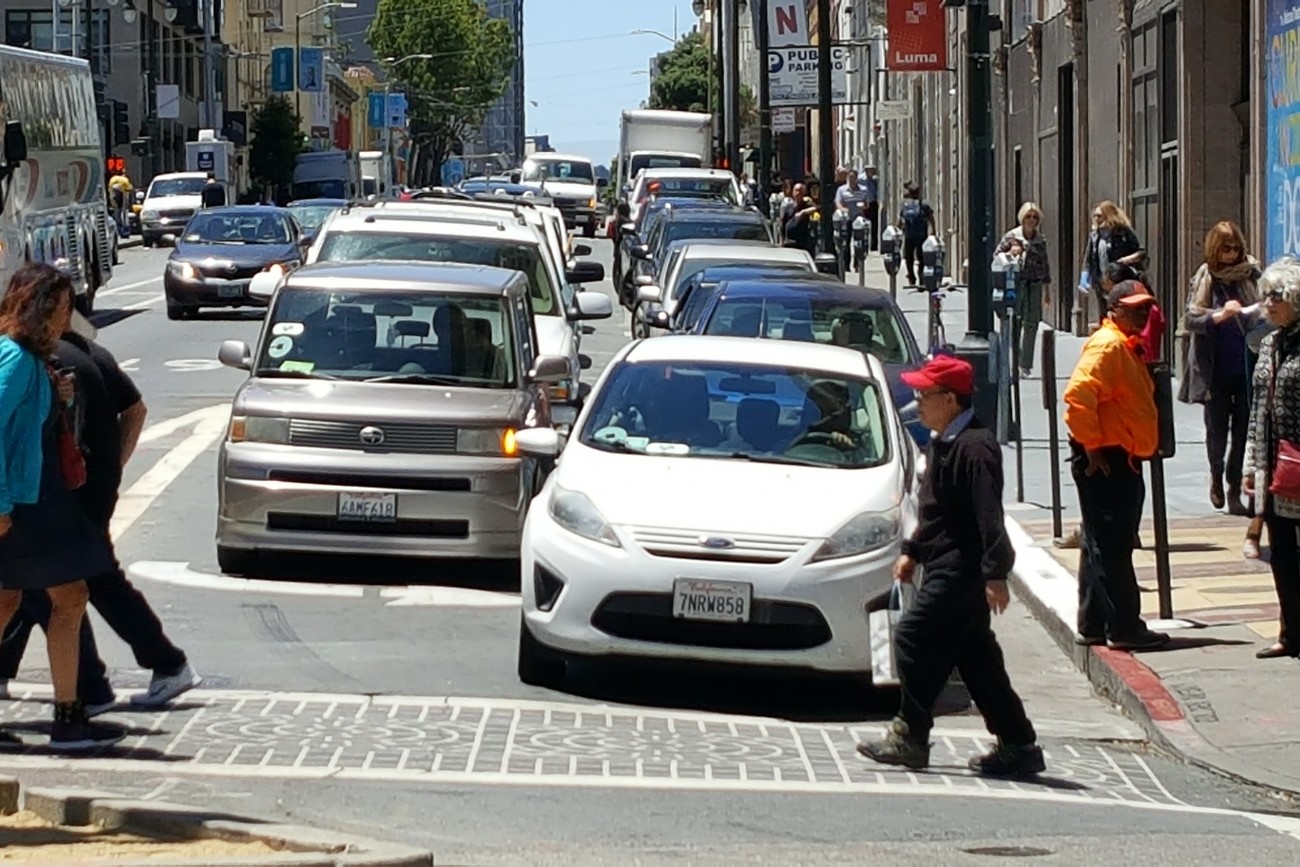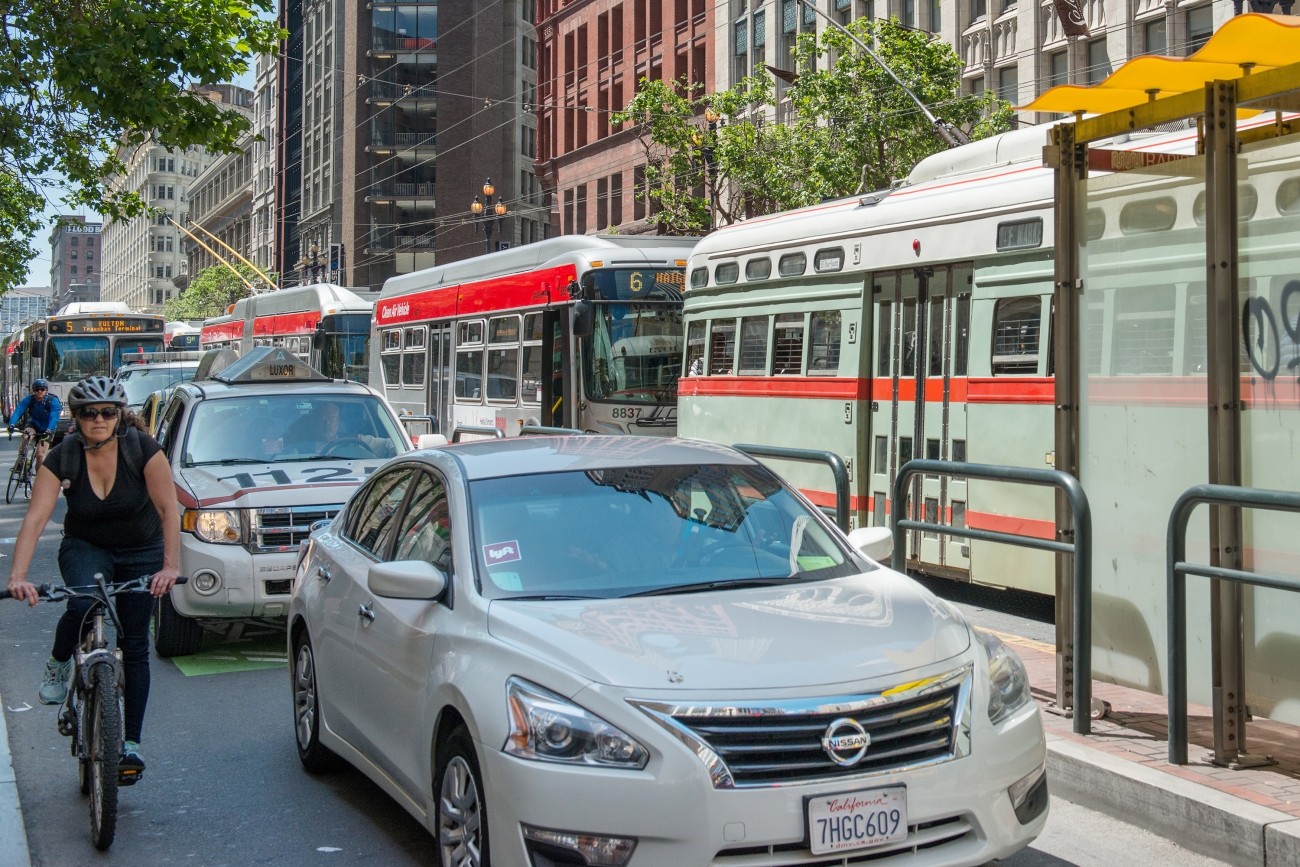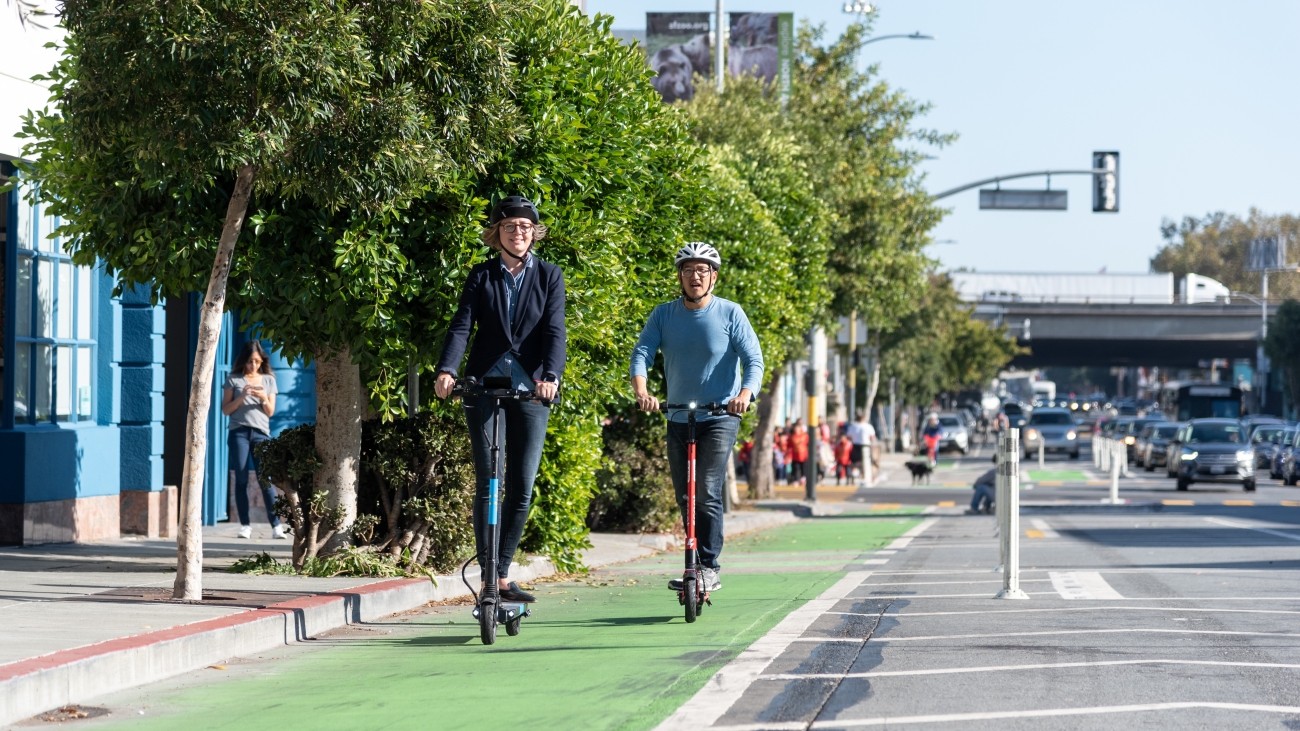
Photo: SFMTA Photography Department
Introduction
The Transportation Authority’s Emerging Mobility Evaluation Report recommends engaging in public-private partnerships with emerging mobility companies to better align new mobility services with San Francisco’s goals.
Public-private partnerships with emerging mobility companies may result in new opportunities to improve San Francisco’s transportation network and address transportation challenges. In addition, new data from these partnerships may help us better understand how these services are impacting our transportation network, aiding our planning and regulatory efforts.
The Transportation Authority is developing a process for identifying and prioritizing which partnerships the city should consider pursuing—whether with public agencies, non-profit groups, or private organizations (developers, employers, or mobility companies)—to meet city goals and community transportation needs.
The Emerging Mobility Pilot Project Framework will:
- Identify and inventory potential pilot opportunities in San Francisco
- Identify potential best practices to public-private partnerships
- Identify mechanisms and processes for screening and prioritizing existing and future pilots
The Pilot Strategy supports the Transportation Authority’s continued work in emerging mobility and the SFMTA’s Emerging Mobility Strategy.
Project Phases of Work and Objectives
-
Ongoing CollaborationGoal: Gather feedback and engage community stakeholders in meaningful dialogue about how emerging mobility services can fill gaps.
-
Needs AssessmentGoal: Engage community stakeholders to document existing mobility and access gaps; inventory market opportunities for pilot projects. As part of this needs assessment, the Transportation Authority will coordinate with long-range transportation planning projects such as Connect SF/San Francisco Transportation Plan and the Metropolitan Transportation Commission's Horizon/Regional Transportation Plan.
-
Pilot Project Identification and Concept ScopingGoal: Document existing pilot projects identified in local and regional transportation plans and identify additional pilot opportunities, along with potential locations and project partners.
-
Pilot Precedent StudyGoal: Document barriers or challenges to pilot/public-private-partnerships and identify best practices to pilot project implementation.
-
Pilot Solicitation, Screening, and Prioritization ToolGoal: Develop a transparent pilot solicitation process and pilot screening and prioritization strategy.

